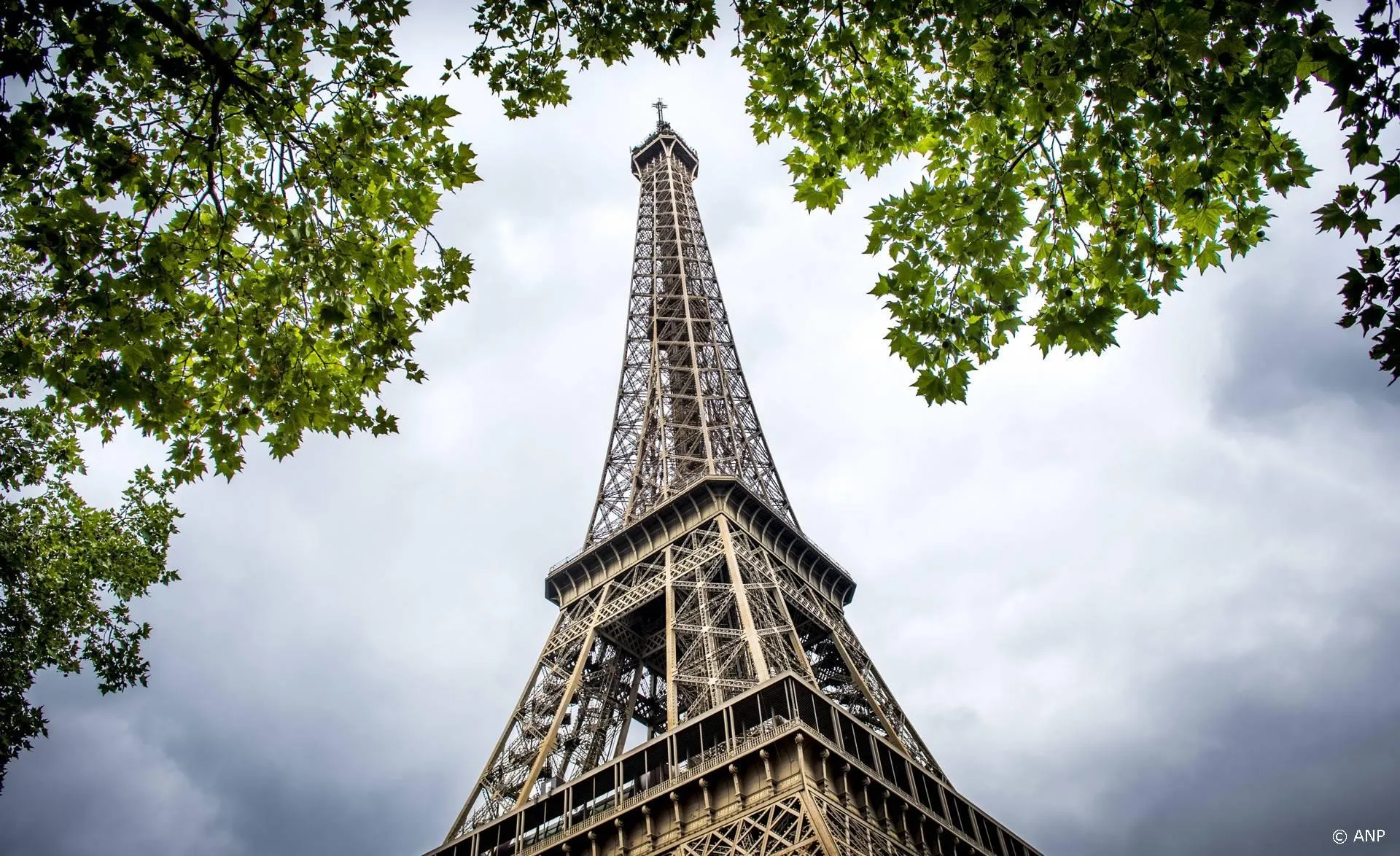Internationale klimaatonderhandelingen doven uit als nachtkaars
President Obama heeft het er maar moeilijk mee. Een internationaal klimaatakkoord zit er niet in. Dan maar 'naming and shaming'.
Onder de titel, 'Good-Bye Treaty', schreef Rupert Darwall voor de 'National Review On Line':
Now the Obama administration is signaling that there will be not be a new climate treaty. According to a report in Wednesdays New York Times, the path to a treaty has come to an end, 14 months before the Paris talks scheduled for next year. Instead, the best deal on offer is a non-binding accord. This is big news.
Meanwhile, the Intergovernmental Panel on Climate Change is reheating the rhetoric from its fifth assessment report, doing what it always does: produce the right mood music ahead of crunch-time climate talks. Trouble is, its all sounding more than a little dated. In that report, the first installment of which was released last September, the IPCC ducked the big question unsettling climate science. What are the possible causes and implications of the pause or hiatus, as the IPCC prefers to call it in the rise in average global temperatures? The pause is already more than a decade old. With 39 explanations and counting, and some climate scientists now arguing that it might last yet another decade, the IPCC has sidelined itself in irrelevance until it has something serious to say about the pause and has reflected on whether its alarmism is justified, given its reliance on computer models that predicted temperature rises that have not occurred.
Verschillende plannen om de tegenstellingen tussen ontwikkelde- en ontwikkelingslanden te overbruggen zijn mislukt. Bindende verplichtingen om de menselijke uitstoot van CO2 te beperken, stuiten op fel verzet van de ontwikkelingslanden, met China en India voorop.
For the Obama administration, this means reverting to its pre-Durban Plan A: no legally binding commitments but voluntary pledges, notified under the auspices of the 1992 convention and underpinned by a regime of naming and shaming those who dont live up to them. There is a big problem with this. It has already been tried, and it failed.
Aldus Rupert Darwall.
Zie verder hier.
UN SG Ban Kimoon heeft de wereldleiders uitgenodigd om op 23 september in New York bijeen te komen om de internationale onderhandelingen over een opvolger van het Kyotoverdrag, die al jarenlang in het slop zitten, een nieuwe politieke impuls te geven. Maar de leiders van landen die de meeste CO2 uitstoten, hebben laten weten dat zij andere verplichtingen hebben. Dat geldt voor President Xi Jinping van China en de PM van India, Narendra Modi. Maar ook de 'Klimakanzlerin', Angela Merkel, heeft intussen laten weten dat zij een bezoek aan New York druk, druk, druk niet in haar agenda kon inpassen.
Onder de titel, 'China and Indian Leaders Said to Skip UN Climate Summit', rapporteren Sangwon Yoon en Mark Drajem voor Bloomberg:
The top leaders of China and India arent planning to attend this months United Nations summit on climate change, signaling tepid support for a global pact to cut greenhouse gases among two of the largest emitters.
President Xi Jinping of China and Indian Prime Minister Narendra Modi have told UN Secretary General Ban Ki-moon they wont be at the daylong meeting of world leaders on Sept. 23, according to two UN diplomats, requesting not to be identified discussing the leaders plans. Their absence undercuts the summit, although it may not be fatal for negotiations set to wrap up by the end of 2015.
China is the worlds top greenhouse-gas emitter, and India is third, after the U.S., according to World Bank data. Together China and India account for nearly a third of total emissions, and their carbon footprint is growing while it remains flat in the U.S. and Europe. ...
Lees verder hier.
Onder de titel, 'Klimagipfel ohne Merkel', rapporteerde 'TAZ.de':
Gerne lässt sie sich als Klimakanzlerin feiern, doch eine Einladung des UN-Generalsekretärs schlägt die deutsche Regierungschefin aus.
Angela Merkel wird im September nicht zum Klimagipfel nach New York reisen. Das bestätigte der taz ein Regierungssprecher. Eingeladen hat UN-Generalsekretär Ban KiMoon Staats und Regierungschefs der ganzen Welt. Er verknüpfte dies mit der Aufforderung, mit Ehrgeiz und Verantwortung teilzunehmen.
Andere Staatschefs werden, so heißt es aus Ban KiMoons Umfeld, der Einladung folgen. So wird USPräsident Barack Obama zu dem Treffen erwartet. Frankreichs Präsident Francois Hollande auch.
Lees verder hier.
Maar ja, dat zal waarschijnlijk toch een schrale troost zijn voor Ban Kimoon, die veel persoonlijk prestige heeft geïnvesteerd in de heroïsche strijd tegen de opwarming van de aarde (die nu al bijna 18 jaar maar steeds niet wil komen) en de wereldreddende rol die de VN daarin kan spelen.
Zou de internationale gemeenschap misschien niet iets anders moeten verzinnen om iets aan die vreselijke (virtuele) dreiging te doen?
Onder de titel, 'The Climate Change Agenda Needs to Adapt to Reality. Limiting carbon emissions won't work. Better to begin adjusting to a warmer world', schreef Edward P. Lazear in 'The Wall Street Journal' wat volgens hem diende te worden gedaan.
Het is een overzicht van ideeën die al geruime tijd circuleren. Dus eigenlijk niets nieuws. Maar ze komen van een auteur die voorzitter is geweest van de 'President's Council of Economic Advisers' (2006-09) en voorzitter van het 'White House Committee on the Economics of Climate Change' (2007-08). En dat geeft ze natuurlijk extra gewicht.
Lazear:
The Obama administration is instituting a variety of far-reaching policies to reduce carbon emissions and mitigate climate change. Are any of these capable of making a difference? Simple arithmetic suggests not. Given this reality, we would be wise to consider strategies that complement and may be more effective than mitigationnamely, adaptation.
According to the Paris-based International Energy Agency, in 2012 the world emitted a little over 31 gigatons of carbon dioxide. China was the No. 1 emitter, accounting for more than one-fourth of the carbon produced. The U.S. was second, emitting about one-sixth.
China and India, among other developing countries, argue that they should be allowed to increase carbon emissions. They're still developing and require higher rates of economic growth. Moreover, they aren't responsible for previous emissions, and on a per capita basis U.S. emissions are much higher. ...
Is there any hope of limiting carbon emissions to 30-50 gigatons in 2030, as many climatologists have called for, with substantial reductions thereafter? Some countries, notably Denmark and Sweden, have significantly reduced emissions. Can the U.S. do the same?
Feel-good actions won't make a dent. .
The economics also work against a major transformation in the technology of producing power, either mobile or stationary. Coal is cheap. Natural gas is becoming even cheaper, but its carbon emissions, according to the U.S. Energy Information Administration, are still half those of coal and three-quarters those of gasoline per unit of energy produced. Although a switch to natural gas for many power uses would help, and accounts for recent drops in U.S. emissions, it cannot change the carbon arithmetic enough to prevent the world from exceeding "safe" levels. ...
Very high carbon taxes or severely restrictive cap-and-trade policies might provide substantial motivation to conserve. These could reduce carbon-intensive consumption and motivate a switch to lower carbon power sources like nuclear. But these actions are undesirable because of their adverse effects on the economy. Australia instituted a $22 per ton carbon-dioxide tax in 2012. It repealed the highly unpopular measure this July, mainly because of its economic costs and perceived ineffectiveness. ...
Given these limitations on mitigating carbon emissions, it is important to study how to adapt to climate change. There are myriad possibilities for adaptation, including the obvious, like building dikes in low-lying areas, and planting heat-tolerant crops and trees in cities.
Organizations like the U.N.sponsored Intergovernmental Panel on Climate Change have pushed adaptation as a complementary strategy to mitigation. Still, adaptation has received little attention by the Obama administration and is hardly mentioned in public discussion. Proponents of strong anticarbon measures seem to believe that even considering an alternative to mitigation will weaken the public's willingness to bear the costs of mitigation.
Carbon math makes clear that without major effort and a good bit of luck, we are unlikely to control the growth of emissions enough to meet the standards that many climate scientists suggest are necessary. It is time to end the delusions and start thinking realistically about what can and will be done.
Aldus Edward Lazear.
Lees verder hier.
Een opvolger van het Kyotoverdrag met bindende CO2reductieverplichtingen zal politiek niet lukken (zoals ik al meer dan tien jaar geleden heb voorspeld, waarna klimaatbevlogenen emmers met hoon over mij hebben uitgestort). De verwachting is dat de CO2concentratie in de atmosfeer zal blijven toenemen. In het licht van de opwarmings'pauze', is het effect daarvan op de temperatuur waarschijnlijk veel en veel geringer dan werd aangenomen. We hebben derhalve nog ruim de tijd om verstandige en kosteneffectieve maatregelen te nemen indien de ontwikkeling van het klimaat (opwarming of afkoeling!) daartoe zou nopen.
Hoe het ook zij, het kaartenhuis valt steeds verder in elkaar.
Voor mijn eerdere DDSbijdragen zie hier.
Ga verder met lezen
Dit vind je misschien ook leuk
Laat mensen jouw mening weten
Lees ook
Loading


